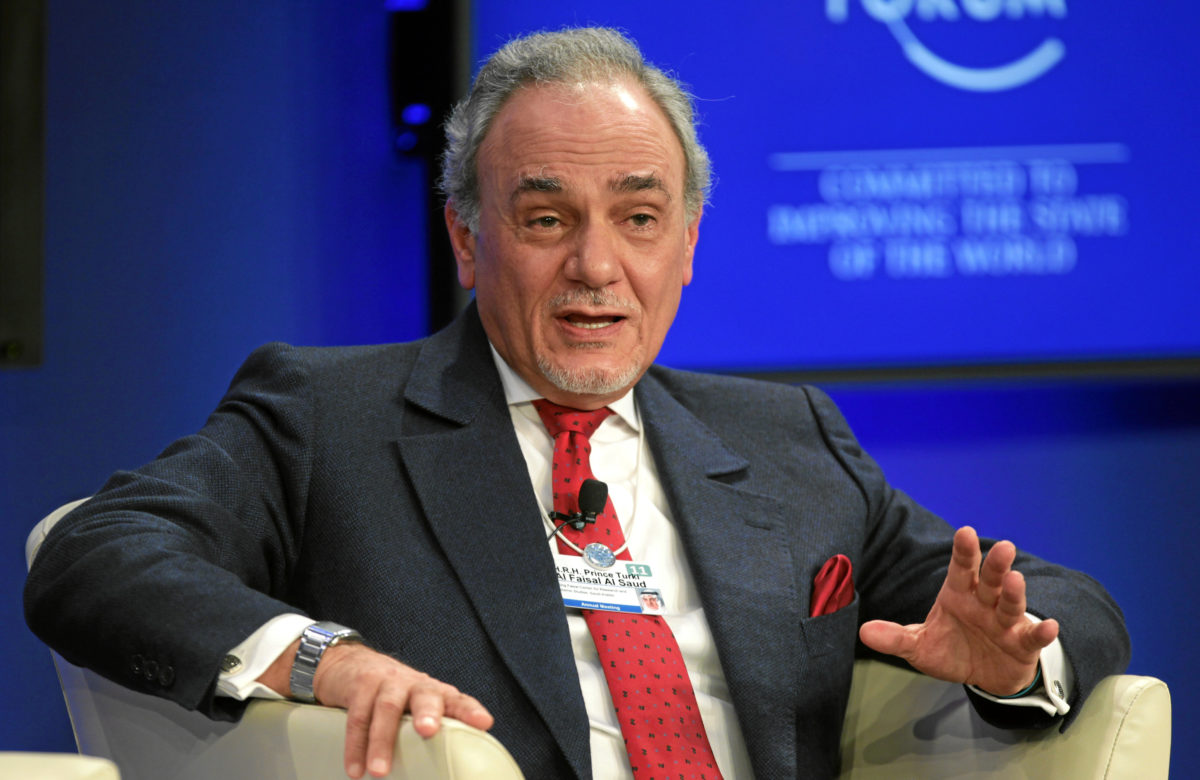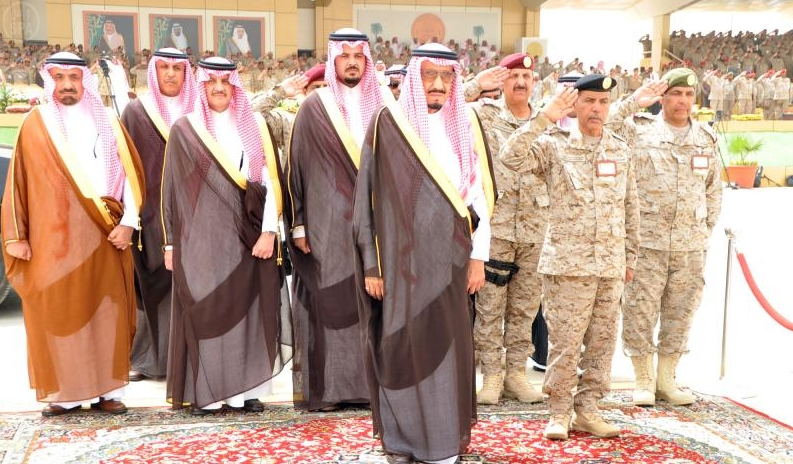Saudi Arabia’s Prince Turki al Faisal told NPR that limited attacks on the self-styled Islamic State, or Daesh, are unlikely to work and that efforts thus far have been “disjointed.”
“Having simply these pinprick attacks on certain areas is not going to resolve the issue,” al Faisal said, and added, “You really have two air force coalitions – one operating in Syria, not crossing the border into Iraq. The other operating in Iraq, not crossing the border into Syria.”
Saudi Prince Turki al Faisal, who is a full brother of the current Minister of Foreign Affairs Prince Saud al Faisal, and son of the late King Faisal, is not currently in an official position with the Saudi government but was previously Saudi Ambassador to the United States after serving as General Intelligence Directorate for 23 years. Prince Turki was educated in the United States and the UK, a graduate of Georgetown’s School of Foreign Service and attended the elite Lawrenceville school in New Jersey for secondary education.
Prince Turki’s comments come on the heels of two key meetings in Riyadh and Washington aimed at tamping down the extremist threat posed by Daesh. In Riyadh this week, military leaders from 26 nations met to discuss joint efforts to combat Daesh in Iraq and Syria. Simultaneously, the White House held a summit on extremism, which was attended by political leaders including UN Secretary General Ban Ki Moon.
In an interview with Newshour’s Judy Woodruff last night in Washington, Moon said that extremism was the greatest threat to global stability. Moon also discussed the role of Syria’s President Bashar Assad in creating regional instability.
In remarks at that summit, President Obama said that Al Qaeda and ISIL and groups like it are “desperate for legitimacy.” “They try to portray themselves as religious leaders — holy warriors in defense of Islam. That’s why ISIL presumes to declare itself the “Islamic State.” And they propagate the notion that America — and the West, generally — is at war with Islam. That’s how they recruit. That’s how they try to radicalize young people. We must never accept the premise that they put forward, because it is a lie. Nor should we grant these terrorists the religious legitimacy that they seek. They are not religious leaders — they’re terrorists. And we are not at war with Islam. We are at war with people who have perverted Islam.”










